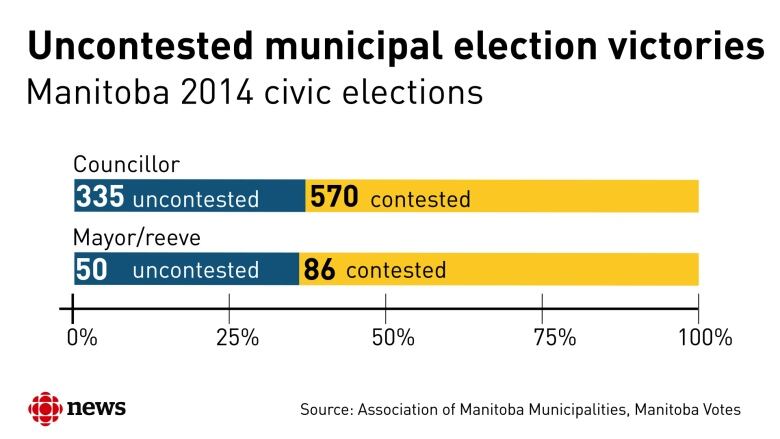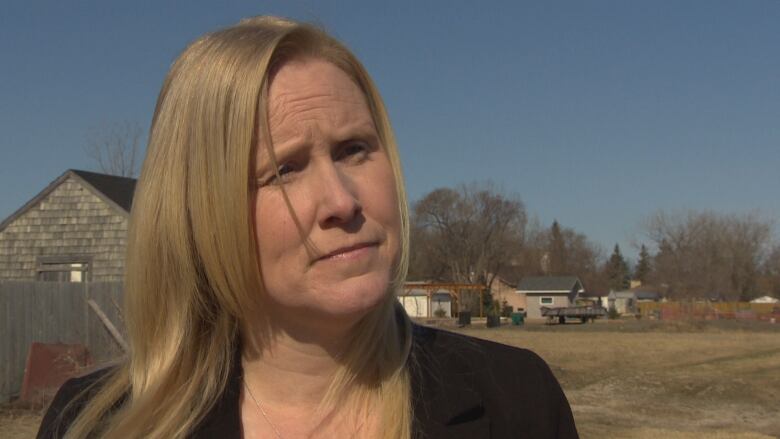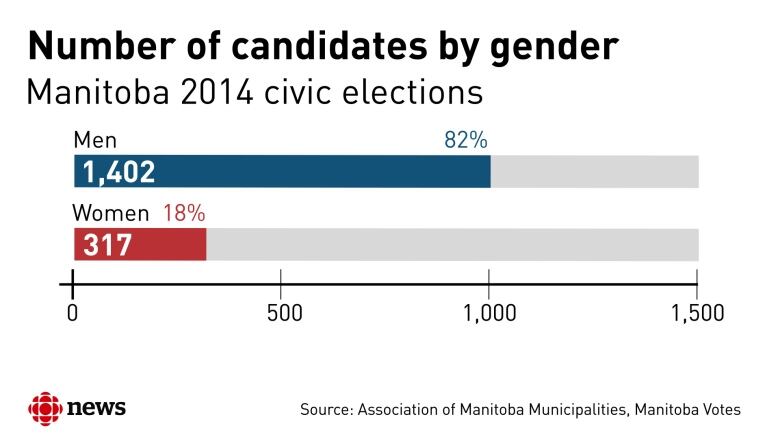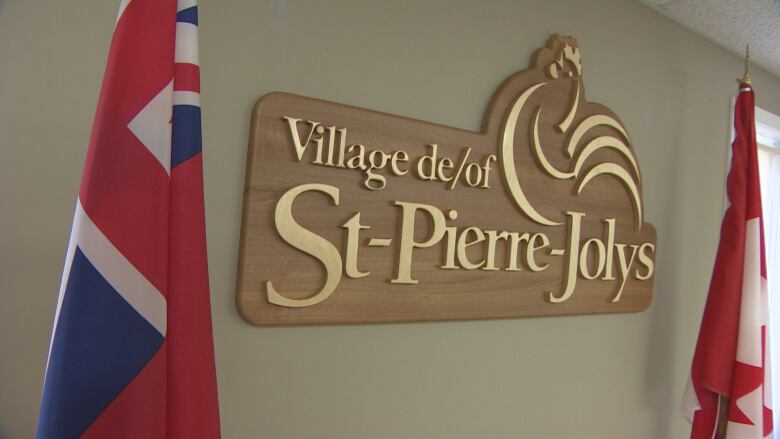Nearly 40% of municipal politicians in Manitoba ran uncontested in 2014
Low pay, negative perceptions, toxic environment partly to blame, say officials and experts

With the official launch of thecampaign period for heads of councilprovince-wide this week, municipalitiesare on the lookout for interested candidates to ensurecompetitive races in the upcoming fall elections. But if recent history repeatsitself, some upcoming races may notbe so competitive.
In 2014, nearly 40 per cent of all elected municipal politicians in Manitoba ran uncontested, according to a CBC News analysis.
The southern Manitoba town of St-Pierre-Jolys is one community where the competition hasn't been all that competitive in recent years. Its residents haven't had a civic election since 2006, and over the past decade, two consecutive councilshave been entirely formed by candidates who ranunopposed.
While the situation in St-Pierre-Jolys may seem surprising, the town is actually in good company.
CBC News analyzed the 2014 civic election results of Manitoba's 137 municipalities and found that 37 per cent of all members of councilincluding mayors and reeveswere elected by default due to a lack of opponents.

Currently, over 42 per cent of all municipal governments in the province have a council that is more than half acclaimed. Fourteen municipalities are like St-Pierre-Jolys where all their local politicians were acclaimed.
Municipalities whose entire council ran unopposed in 2014:
- Altona (6 acclamations).
- Arborg (5 acclamations).
- Carman (7acclamations).
- Elton (7acclamations).
- Gillam (5acclamations).
- Grand Rapids (5 acclamations).
- Killarney-Turtle Mountain (7 acclamations)
- Town of Lac du Bonnet (5 acclamations)
- Melita (5 acclamations)
- Rhineland (16 acclamations)
- St-Pierre-Jolys(5 acclamations)
- Ste. Rose (5 acclamations)
- Virden (7 acclamations)
Toxic workplace environment
Some local politicians are increasinglyshining a light on behaviour they say discourages well-meaning residents from running for office or deters existing politicians from seeking a second term.
"I got involved in local politics to help the community, to see if I could make a difference," says West St. Paul Coun. Cheryl Christian."I was interested and attended meetings for three years and wanted to jump in to see if I could help."

The first term councillor, who took a break from completing herPhDat the University of Manitobato run in 2014, says that with little media scrutiny in smaller communities, and chamber policies in some regions that prohibit the recording of council meetings, the atmosphere can quickly degenerate into a toxic environment.
"It's absolutely part of the problem. We need to ensure that there's a safe working environment and its hard to attract and retain people in these positions if we can't ensure their safety," she said.
"The bullying, it's a continuum. It ranges from being excluded from meetings and not receiving information to physical sexual harassment people that have had photos taken of them in their house and mailed to them, the harassment that we've heard about ishorrific," said Christian.
Bullying and harassment
In 2017, the mayor of the municipality of Ritchot, Jackie Hunt,abruptly resigned along with two other councillorsin protest overallegations that other councillors were name-calling and exhibiting belligerent behaviour.
The CBCanalysis also found that women were far less likely to run in local elections, representingjust 18 per cent of candidates.

Christian says the harassmentis not just affecting women. Many men who were previously silent about the dysfunction are now speaking publicly about the issue, she said.
Dave Kreklewich, the mayor of Oakland-Wawanesa,says keeping the peace on council can be a challenge. In 2016, two administrators within themunicipality launched a civil suit against the town allegingharassmentand bullying from a councillor.
Kreklewich says given that many smaller municipalities have a remuneration of about$10,000 a year to handle sometimes difficult situations, clearly people aren't entering politics for the money.
"It probably works out to less than $10 an hour," he says.
Politics held in lower esteem
A political scientistwith the University of Winnipegsays these numbers don't surprise him.
"Our attitudes toward politics and politicians have gotten worse over time and as a result, the willingness of people to actually step up and run for election has actually declined," said U of W assistant professorAaron Moore.
While the participation rates aren't at odds with other jurisdictions across the country, he says it's an important issue to track for the health of local democracies.
"In part when you have a contest you have an onus on people to actually state what their policy positions are," he said.
"You get more information about what these people are actually standing for, whereas if you only have one person running they have no obligation to inform you about anything."
A similar analysis by CBCNewsinQuebecfound that in 2013, over 50 per cent of the province'smunicipal politicians ran unopposed.
The Manitoba government department of Indigenous and Municipal Relations states that beyond establishing the framework for election rules and eligibility, it does not have to play a role in increasing participation. The department did note, however, that 2014 results were actually an improvement over 2010, when nearly 50 per cent of local politicians were acclaimed.
Proactivelyseeking candidates
The chief administrative officer for St-Pierre-Jolys says they are hopeful they will have elections this upcoming October.
"This time around we're going to be a little more aggressive about it,"says CAOJanineWiebe."We would like to put some door hangers on doors, just reminding people if they have interest to call the office, to come into the office, we'll give them a tour of the office, invite them to council chambers."

But Moore says studies have shownthat in small communities the lack of candidates doesn't always equate to complacency.
"People are going to know who their candidates areand as a result if the public is generally happy with the individuals that are running, then we aren't going to get other candidates running against them," he says.
He says that when elections are held in small communities, they often also achieve higher-than-average participation rates. In 2014, Winnipeg hada turnout of just over 50 per cent, while turnout in West St. Paul, Churchill and Powerview-Pine Falls were all above 60 per cent.
The Association of Manitoba Municipalities declined to comment for this story.
Thenext civic elections will be held onOct.24, 2018.












_(720p).jpg)


 OFFICIAL HD MUSIC VIDEO.jpg)
.jpg)



























































































